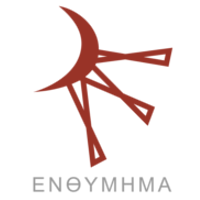Roles of Interpretation in Wolfgang Iser’s Theory of Reading and Systematic Poetics
DOI:
https://doi.org/10.13130/2037-2426/8369Parole chiave:
poetics, phenomenology, hermeneutics, metahermeneuticsAbstract
On first glance, Wolfgang Iser seems to share little ground with pioneers of poetics like Tzvetan Todorov and Benjamin Harshav, who explicitly excluded interpretation from the province of poetics. Indeed, if Iser has any connection with poetics, and this article argues that he does, it is via the critical fringes of poetics, where excluding interpretation from systematic study of literature was never seen as an option one could choose. Although poetics versus hermeneutics was one of the major theoretical themes of the late 1970’s, Iser is better understood in the context of critical thought aiming to avoid the strict opposition between the two. Delving in turn into Iser’s theory, his analytical practice, and theory of poetics, this essay points out several points where dialogue between Iser’s work and the endeavor of systematic poetics can be productive.Downloads
Riferimenti bibliografici
Alanko, Outi. “Roman Ingardenin Ja Wolfgang Iserin Fenomenologinen Kirjallisuudenteoria. Tekstin Ja Lukijan Vuorovaikutuksen Kuvaamisen Ongelmia.” Licentiate Thesis. University of Helsinki, 1994. Print.
Barthes, Roland. “Introduction to the Structural Analysis of Narrative.” New Literary History 6.2 (1975): 237–272. Print.
Culler, Jonathan. “Interpretations: Data or Goals?” Poetics Today 9.2 (1988): 275–290. Print.
---. On Deconstruction: Theory and Criticism after Structuralism. Ithaca:
Cornell University Press, 1982. Print.
---. The Pursuit of Signs: Semiotics, Literature, Deconstruction. London: Routledge & Kegan Paul, 1981. Print.
Doležel, Lubomír. Occidental Poetics: Tradition and Progress. Lincoln: University of Nebraska Press, 1990. Print.
Fish, Stanley. “Why No One’s Afraid of Wolfgang Iser.” Diacritics 11.1 (1981): 2–13. Print.
Geertz, Clifford. The Interpretation of Cultures: Selected Essays. New York: Basic Books, 1973. Print.
Genette, Gérard. Figures of Literary Discourse. New York: Columbia University Press, 1982. Print.
---. Narrative discourse: an essay in method. Trans. Jane E. Lewin. Ithaca, N.Y.: Cornell University Press, 1980. Print.
Harding, James M. “Review: Given Movement: Determinant Response, Textual Givens, and Hegelian Moments in Wolfgang Iser’s Reception Theory.” Diacritics 23.1 (1993): 39–52. Print.
Holub, Robert C. Reception Theory: A Critical Introduction. London: Methuen, 1984. Print.
Hrushovski, Benjamin. “Poetics, Criticism, Science.” PTL: A journal for descriptive poetics and theory of literature 1.1 (1976): iii–xxxv. Print.
Iser, Wolfgang. How to Do Theory. Malden: Blackwell, 2006. Print.
---. Prospecting: From Reader Response to Literary Anthropology. Baltimore: Johns Hopkins University Press, 1989. Print.
---. The Act of Reading: A Theory of Aesthetic Response. Baltimore: Johns Hopkins University Press, 1978. Print.
---. The Implied Reader: Patterns of Communication in Prose Fiction from Bunyan to Beckett. Baltimore: Johns Hopkins University Press, 1974. Print.
---. The Range of Interpretation. New York: Columbia University Press, 2000. Print.
James, Henry. The Figure in the Carpet and Other Stories. Harmondsworth, Middlesex; New York: Penguin Books, 1986. Print.
Kaiser, David. “Thomas Kuhn and the Psychology of Scientific Revolutions.” Kuhn’s Structure of Scientific Revolutions at Fifty: Reflections on a Science Classic. Ed. Robert J. Richards and Lorraine Daston. University of Chicago Press, 2016. 71–95. Print.
Kloepfer, Rolf. “Escape into Reception: The Scientistic and Hermeneutic Schools of German Literary Theory.” Trans. Philip Shaw. Poetics Today 3.2 (1982): 47–75. Print.
Littau, Karin. Theories of Reading: Books, Bodies, and Bibliomania. Cambridge, UK: Polity Press, 2006. Print.
Mailloux, Steven. “Interpretation and Rhetorical Hermeneutics.” Reception Study: From Literary Theory to Cultural Studies. Ed. James L Machor and Philip Goldstein. New York; London: Routledge, 2009. 39–60. Print.
---. Interpretive Conventions: The Reader in the Study of American Fiction. Ithaca: Cornell University Press, 1982. Print.
McHale, Brian. “Whatever Happened to Descriptive Poetics?” The Point of Theory: Practices of Cultural Analysis. Ed. Mieke Bal and Inge E Boer. Amsterdam: Amsterdam University Press, 1994. 56–65. Print.
Rorty, Richard. “Is Derrida a Transcendental Philosopher?” Yale Journal of Criticism 2 (1989): 208–212. Print.
Seamon, Roger. “Poetics against Itself: On the Self-Destruction of Modern Scientific Criticism.” PMLA 104.3 (1989): 294–305. Print.
Suleiman, Susan Rubin, and Inge Crosman, eds. The Reader in the Text: Essays on Audience and Interpretation. Princeton, N.J.: Princeton University Press, 1980. Print.
Todorov, Tzvetan. The Poetics of Prose. Ithaca, N.Y.: Cornell University Press, 1977. Print.
Tompkins, Jane P. Reader-Response Criticism: From Formalism to Post-Structuralism. Baltimore: Johns Hopkins University Press, 1980. Print.
Dowloads
Pubblicato
Come citare
Fascicolo
Sezione
Licenza

Except where otherwise noted, the content of this site is licensed under a Creative Commons Attribution 4.0 Unported License.
Accettato 2017-06-24
Pubblicato 2017-06-27





